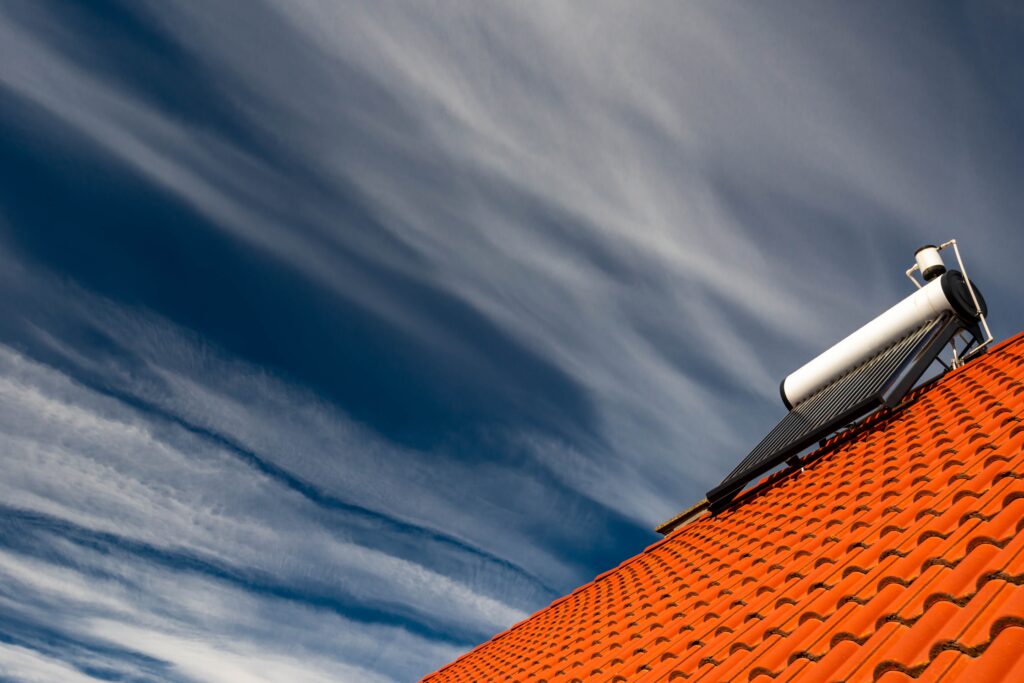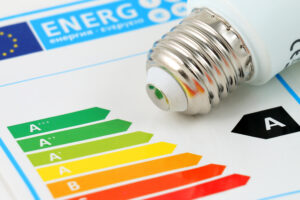
*Updated September 15th, 2025
If you’re like most homeowners, you’ve probably noticed that water bills can really add up—hot water alone can be a big slice of your utility bill. With such a big chunk of your budget going to hot water, it’s no surprise more people are exploring clean energy options. That’s where a solar water heater (a solar water heating system) comes in.
Solar water heaters use solar energy to heat water, easing the load on your conventional unit (electric or gas) and delivering long-term cost savings. Instead of relying solely on grid power, these systems preheat water with sunshine so your backup electric water heater or gas unit does less work.
But how much can you save—and is it worth the upfront spend? Below, we dig into savings, lifespan, incentives (including tax credit options), and whether installing a solar water system makes sense for your home.
The Savings of a Solar Water Heater
It sounds wild, but a quality solar water heater can trim energy bills for water heating by up to 50% or more depending on climate and usage. Savings vary with:
-
Your hot water demand (showers, laundry, dishwashing)
-
Local sun exposure and the performance of your solar collectors
-
The efficiency of the circulation system and heat transfer components
-
Available incentives/rebates (tax credit, state programs, and utility rebates)
When you run the numbers, consider the full installed price of the solar water heating system. Many homeowners see averages around $3,500–$5,000 for a typical system (actual initial cost varies by home and market). Calculate your payback by comparing the annual operating cost of your current water heater to projected energy savings with solar. After the system pays for itself, you’re essentially getting inexpensive warm water thanks to the sun.
Tip: Some utilities and programs—like Hawaii Energy for Hawaii residents—offer rebates to lower the cost of a solar water install. Always check local options before you buy.
How Solar Water Heaters Work
Most systems include roof-mounted solar collectors (often flat plate or evacuated tubes) that absorb solar power and transfer heat to water (or a non-freezing fluid in a closed-loop system). That heat moves via a pump to circulate fluid through a heat exchanger into your water tank. During cloudy weather or at night, your backup conventional water heater takes over so you never run out.
There are two main designs:
-
Active systems/active solar water heaters (water heaters use a pump) to circulate water or heat-transfer fluid.
-
Passive solar water heaters rely on gravity/thermosiphon and have fewer moving parts.
Either way, solar water heaters harness a renewable energy source to offset the electricity used to heat water.
How Long Does a Solar Water Heater Last?
A well-maintained solar water heater can perform efficiently for up to 20 years (often longer), roughly twice the lifespan of many traditional water heaters. Longevity depends on water quality, routine maintenance, and whether the system installed matches your hot water needs/tank size and need.
To gauge performance, pros often use the solar energy factor (energy factor and solar fraction)—helpful specs you’ll see on Energy Star listings and in certifications from the Solar Rating and Certification Corporation. A higher rating generally means better energy efficiency and faster payback.
Are Solar Water Heaters Worth the Investment?
It depends on your usage and schedule. If you consume most hot water during the day, solar does the heavy lifting and the payback speeds up. If your demand is mostly at night, you’ll lean more on backup water heating, stretching the timeline.
Consider:
-
Hot water needs by time of day
-
Local sun conditions and roof orientation for your collector
-
Incentives (rebates, tax credit) and energy costs in your area
-
Expected lifespan of the system vs. your existing home plans
When daytime demand aligns with production—and incentives lower the cost of a solar water setup—switching to a solar water system can absolutely save you up to 40 percent (or more) of your water heating costs over time.
Incentives, Rebates, and Credits
-
Federal tax credit: Qualifying residential solar water heating equipment can be eligible for a federal tax credit; consult current guidance from the Department of Energy and your tax professional.
-
State/utility rebates: Programs like Hawaii Energy provide rebates for certified solar installs (look for clean energy program lists or clean energy allies to receive guidance locally).
-
Equipment standards: Many incentives require Energy Star or certified equipment and qualified installers.
These programs can meaningfully lower the cost of a solar water system and shorten payback.
Quick Specs & Sizing Pointers
-
Right-sizing matters: Your water heater depends on household size and usage; a size system that matches your patterns avoids overspend.
-
Climate fit: In colder climates, a closed-loop system with antifreeze fluid and pumps to move hot fluid is common.
-
Backup heating: Even with solar, plan on backup heating for nights and storms.
-
Quality counts: Choose a certified solar installer; reputable local solar pros will model your annual operating cost and expected energy savings.
Conclusion
Installing a solar water heating system can be a smart move for both your wallet and the planet. While there’s an initial cost, long-term cost savings on your utility bill and strong durability make it compelling—especially with rebates and a federal tax credit in play. Weigh your hot water habits, climate, and roof conditions, then install a solar water heater that’s sized and configured for your home. With the right setup, you’ll heat your water with clean energy for years.
FAQs
Do solar water heaters work at night or on cloudy days?
Yes—with help from backup. Solar water heater systems preheat during sunny periods. At night or in cloudy weather, your standard water heater or integrated backup kicks in so water is heated reliably.
Is maintenance expensive for solar water systems?
Usually not. Periodic cleaning of solar collectors and checks for leaks keep water systems running smoothly. A pro check every few years helps maintain energy efficiency and a low annual operating cost.
Can I DIY, or should I hire a pro?
While some kits exist, most homeowners should hire a qualified installer familiar with solar hot water design, local codes, and incentives. Proper design ensures your typical solar fraction (how much load is used to heat water by solar) is optimized.
What affects the cost the most?
System type (active/passive), roof/collector placement, controls, and regional labor. Your initial cost also depends on tank capacity, circulation system hardware, and whether you’re adding a new solar water heating system or integrating with a current water heater.
How do I compare models?
Look for Energy Star, solar energy factor, and certification via the Solar Rating and Certification Corporation. These help you compare solar water heater performance and projected water heating costs across brands.

Anna has over six years of experience in the home services and journalism industries and serves as the Content Manager at MyHomePros.com, specializing in making complex home improvement topics like HVAC, roofing, and plumbing accessible to all. With a bachelor’s degree in journalism from Auburn University, she excels in crafting localized, comprehensive guides that cater to homeowners’ unique needs. Living on both coasts of the United States has equipped her with a distinctive perspective, fueling her passion for turning any house into a cherished home through informed, personalized decision-making.
Connect with top-rated local contractors who can help you with siding, roofing, HVAC, windows, and more. Get free quotes from verified professionals in your area today.



